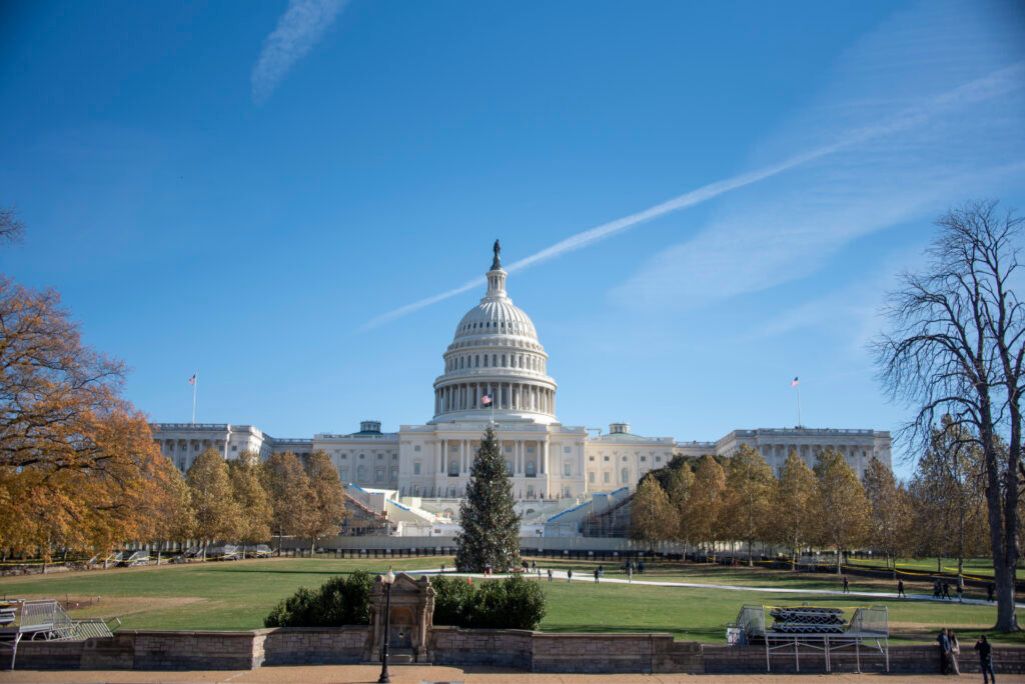Immigration is one of the most polarizing topics in America. Our two major political parties habitually yell sensational slogans and exaggerated criticisms of one another.
To make matters worse, many news outlets have sworn allegiance to either a donkey or an elephant, and bend facts to suit their needs. The average American latches on to a news source, and drinks deeply from their wells of immigration rhetoric.
Unfortunately, many Christians are no different. Most of us think about immigration through the lens of our favorite news network. The Bible, however, has much to say about the topic, if we will look first to the scriptures.
|
|
The believer’s primary identity is not one of American or Republican or Democrat; it is one of immigrant. Throughout redemptive history, God’s people have been called immigrants, people sojourning to a place where Jesus will reign as king (Ezekiel 36-37; Isaiah 40-66; Revelation 20-22).
We have never been exhorted to identify with our present geographic or political boundaries. Instead, the Christian identifies with fellow citizens of the Kingdom of God. That means that we have more in common with a Mexican, Guatemalan or Iraqi Christian – regardless of legal status – than with our flag-waving American neighbor who has no regard for Jesus.
While this may sound odd to our ears, the Bible shows that God’s people have historically been called immigrants who are themselves to show compassion to the stranger. We see as early as Genesis, God makes a covenant with Abraham, promising that His descendants will inherit a land of peace and prosperity (Genesis 12, 15). Until then, they will be strangers, journeying to the Promised Land.
Along the way, Abraham’s descendants became slaves in Egypt – in other words, poorly treated immigrants (Exodus 1-14). After being delivered from bondage, the Israelites resumed their sojourn to the land. While in the wilderness, God gave His people the Law, which stipulates they are to treat foreigners with love and kindness, contrary to the way they were treated in Egypt (Exodus 22:21; Deuteronomy 23:7).
The Law extended to strangers the same social protections as native Israelites (Leviticus 19:34). They were entitled, for example, to fair treatment as laborers (Deuteronomy 24:14) and rest from work on Sabbath (Exodus 20:10).
Israel abused immigrants to a degree that prophets raged against their treatment of the vulnerable (Ezekiel 22:7-9; Malachi 3:5). Israel’s flagrant mistreatment of the foreigner was one of the primary reasons they were eventually sent into exile.
While Christians are not the nation of Israel, loving the immigrant is a principle that applies to all believers throughout history, for both the Old and New Covenants exhort love of neighbor (Leviticus 19; Matthew 22). In case you were wondering, an undocumented person is your neighbor.
The Parable of the Good Samaritan (Luke 10) even shows that we are to love and care for the needs of those of different ethnicities, even groups against whom we have strong enmity. Thus, the Christian should show kindness to the immigrant, regardless if he or she is our adversary or of a different ethnic group.
Centuries after entering the land, God sent His people into exile (Kings-Chronicles). Once again, the Israelites became immigrants under the rule of foreign nations, such as Assyria and Babylon. While in exile, God’s people maintained hope that they would inherit the land, now expecting to inherit a reconstituted earth (Psalm 2; Ezekiel 36–37; Isaiah 65–66). The Old Testament ended with this very good expectation, anticipating the day when God’s people would no longer be immigrants.
The New Testament authors had this story in mind as they wrote their documents – a story that reached its climax in Jesus the Christ, who will deliver a community of immigrants (like you, me, Paul, Moses and Abraham) from exile and into a new earth.
Peter, for example, calls his readers “elect immigrants” (1 Peter 1:1) and “immigrants and sojourners” (2:11), terms often used to refer to someone who is living in a foreign land, either by force or by their own volition.
Peter uses such language to underscore that Christians are living as foreigners in the present world, awaiting entrance into the place where their citizenship truly lies (1 Peter 1:4; 2 Peter 3).
Thinking of Peter’s words in view of the biblical storyline, the hope of New Covenant believers is the same as that of faithful Jews under the Old Covenant. That is, we are strangers in the present cosmos awaiting the inheritance of a new creation (Isaiah 65–66; Romans 4, 8; Revelation 21–22). This is the story of God’s multiethnic people who will be saved through Messiah Jesus.
Allowing the Bible to shape our view of immigration should lead to the following conclusion:
We must accept our status as immigrants and love those who are yearning for a better home, regardless of their country of origin.
Our primary identity is not tied to our citizenship in America or membership in a political party; it is bound to our allegiance to a multiethnic Kingdom that has yet to be fully revealed, where an olive-skinned Jew, who was formerly an immigrant in Egypt (Matthew 2), will reign as king.
In His Kingdom, we will live with those who came to America as undocumented immigrants, seeking refuge from wars or searching for a better life, finally finding rest in the arms of Jesus.
Should we not, then, embrace the stranger, knowing that he may be a fellow Christian sojourning to the same eternal destination? Should we not be kind to the immigrant, knowing that he may need to hear the words of eternal life?
Would not such actions speak prophetically amid a political climate that is more concerned with demonization than salvation, more concerned with building a wall than extending the right hand of fellowship, more concerned with winning an election than gaining an unfading crown of glory?
I heartily believe so.
(EDITOR’S NOTE – Miguel Echevarría is assistant professor of New Testament and director of Hispanic Leadership Development at Southeastern Baptist Theological Seminary in Wake Forest, N.C. This article is adapted from a chapter in the forthcoming book, Islam in America, edited by Keith Whitfield and Micah Fries. Used by permission.)



